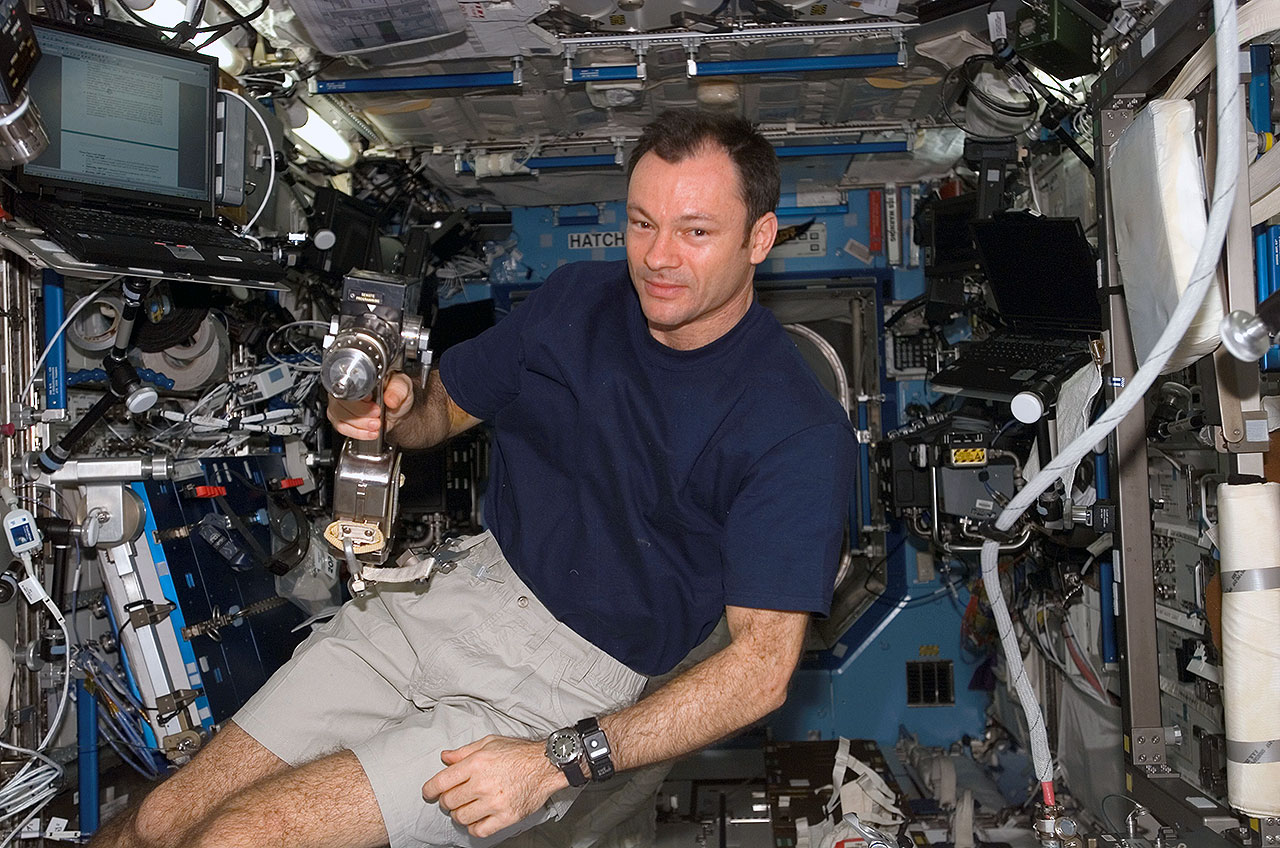Ax-1, 1st all-private crewed flight to ISS, aims to blaze trail for future missions
Ax-1 aims to 'set the bar very, very high.'
Axiom Space aims to set a standard for future crews with its pioneering mission to the International Space Station (ISS) next month.
Axiom's Ax-1, the first all-private crewed mission to the orbiting lab, is scheduled to launch on March 30 and last for 10 days. Ax-1's four spaceflyers — three paying customers and Axiom's Michael López-Alegría, who's commanding the mission — will fly inside a SpaceX Dragon capsule, which will lift off atop a Falcon 9 rocket.
"There have been individuals that have flown on government flights, but never a completely private flight [to the ISS] ... So we're very excited about this being the very first one of those," Michael Suffredini, president and CEO of Axiom, said during a livestreamed press conference Monday (Feb. 28).
Axiom ultimately aims to operate its own commercial space station, and the Houston-based company plans to launch a private module to the ISS in about two years to start building on that goal, Suffredini said.
He said Ax-1, however, will be the first of "probably hundreds of missions" during the buildout of the Axiom space station and of other missions for services in low Earth orbit. This first crew, he added, has an ambitious research agenda in mind that will not be focused on having the members "paste their nose on the window."
Photos: The first space tourists
The Ax-1 crewmembers are gearing up for such work as they enter the home stretch of their training, López-Alegría, a former NASA astronaut, said during the same briefing.
Breaking space news, the latest updates on rocket launches, skywatching events and more!
For now, the spaceflyers are focused on refresher training and on "collection of data for the experiments that we do; generally they like doing some pre-flight, in-flight and post flight," he said. (This is especially true of medical experiments that focus on how spaceflyers' bodies change due to the rigors of spaceflight.)
López-Alegría added that the Ax-1 training has been broadly similar to that he experienced when preparing for NASA missions. "Our focus is always safety and mission success, and that's really unchanged," he said.
López-Alegría noted that his crew is seeking to be "standard bearers" for how private astronauts should conduct themselves on the ISS, seeking to "set the bar very, very high" because they know they will be guests on the orbiting complex.
López-Alegría said his relationships with space tourists in the past, when he was a NASA astronaut, were positive. But he also recognized the potential for disruption. "We're super sensitive to that, and we think that's a very good example to be setting for future crews. Everybody on the crew is ... very dedicated, very committed, very professional in this, and we really are taking this very, very seriously. It's not tourism."
The International Space Station: Facts, history and tracking

The crew's time will be largely spent on a "collection" of life science and technology demonstrations, Christian Maender, Axiom's director of in-space research and manufacturing, said during the press conference. More announcements will be forthcoming in future weeks, he added.
The medical investigations will include work with stem cells and cardiac health, and one of the key tech demonstrations will be in-space spacecraft assembly, which proponents hope reduces the costs involved with getting equipment up and running in orbit. (Officials noted that the work may also generate some good videos for public engagement.)
Looking ahead to the Axiom space station, Suffredini said the planned launch date for the first module will be in September 2024. The company should wrap up critical design reviews for the first two modules this summer, he added.
Among the modules that Axiom plans to launch is a research facility, which will help take over some of the in-orbit science responsibilities when the "ISS is ready to retire ... about a year before that happens," Suffredini.
Suffredini, who was NASA's International Space Station program manager from 2005 to 2015, said that it's possible Axiom's modules could support a mission as soon as 2028 if necessary. "We do have some flexibility there," he said.
Axiom will launch its modules to the ISS initially. The private facility will eventually detach from the ISS and become a bona fide space station of its own.
NASA wants to extend the ISS agreement to 2030, but that is pending pledges from the various partners that make up the multinational pact to extend beyond the current end date of 2024.
The largest partner, Russia, is now facing severe international sanctions in space (among many other industries) due to a military invasion of Ukraine last week. The invasion has been condemned by the United States and the North Atlantic Treaty Organization (NATO), among others; many NATO partners have also implemented industry and financial sanctions.
During Monday's call, Kathy Lueders, NASA's associate administrator of space operations, emphasized that NASA and Russia continue to work together as usual on the ISS and are committed to continuing that relationship.
"We as a team are operating just like we were operating three weeks ago," she said. "The teams, the controllers are still talking together. Our teams are still talking together. We're still doing training together. We're still working together."
Follow Elizabeth Howell on Twitter @howellspace. Follow us on Twitter @Spacedotcom or Facebook.

Elizabeth Howell (she/her), Ph.D., was a staff writer in the spaceflight channel between 2022 and 2024 specializing in Canadian space news. She was contributing writer for Space.com for 10 years from 2012 to 2024. Elizabeth's reporting includes multiple exclusives with the White House, leading world coverage about a lost-and-found space tomato on the International Space Station, witnessing five human spaceflight launches on two continents, flying parabolic, working inside a spacesuit, and participating in a simulated Mars mission. Her latest book, "Why Am I Taller?" (ECW Press, 2022) is co-written with astronaut Dave Williams.
